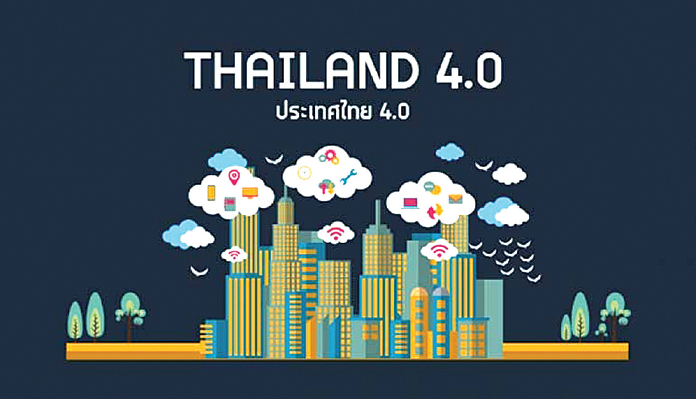Taiwan has been an important economic partner of Thailand. Its business investment in Thailand began when Taiwan was under Japanese rule (1895-1945), and later rose when Taiwan’s economy surged in the 1990s. Taiwanese businesses currently employ some 150,000 Taiwanese. Most of these Taiwanese own or work for small or medium-sized enterprises in the OEM business.
In addition, Taiwan is the home of the largest Thai workers in the world. These Thai workers have contributed to the competitive edge of Taiwan’s economy. They work tirelessly in the manufacturing industries and infrastructure projects including subway, high speed railways and the Taipei 101 Building which is now the tallest building in the world.
On the other hand, the numbers of Taiwanese paying visit to Thailand for business, commerce, culture and tourist has reached 500,000-700,000 each year. This high number reflects the common sharing and understanding between the two peoples, and that of Thailand and Taiwan.
Thailand 4.0
Thailand’s current policy of promoting Thailand 4.0 matches Taiwan’s industrial innovation policy well.
The Thailand 4.0 is an economic model that aims to unlock the country from several economic challenges resulting from past economic development models which place emphasis on agriculture (Thailand 1.0), light industry (Thailand 2.0), and advanced industry (Thailand 3.0). These challenges include “a middle income trap”, “an inequality trap”, and “an imbalanced trap”.
Taiwan aims to encourage industrial upgrade which is coherent with the goal of Thailand 4.0 to increase value of traditional industries with technology, and to provide full support to emerging industries, such as smart machinery and automation.
Both countries industrial strengths complemented each other. In fact, Taiwan was the third-largest investor after Japan and the U.S. in Thailand, with Taiwan’s accumulated investment amounting to US$14.2 billion (TBH 492 billion).
In June 2018, a Thailand delegation comprised of 27 senior Thai investment advisers, business leaders and experts arrived in Taipei, joining a fruitful joint economic cooperation meeting with a Taiwan government-sponsored business organisation that promotes trade and investment.

During the meeting, participants exchanged thoughts and experiences over issues like; developing smart cities, smart manufacturing, and the Internet of Things (IoT), which are currently hot topics, with large investments being made by many Taiwanese companies related to these areas.
The Chinese International Economic Cooperation Association (CIECA), which co-hosted the joint meeting, said that Thailand is a relatively business friendly country, whose corporate income tax rate is 20%, the second lowest among ASEAN nations. The Thai government also provides a variety of investment incentives for foreign companies in the field of cloud service, smart manufacturing, and other areas. The qualified foreign high-tech companies can enjoy tax exemption for five to eight years or import tariffs cuts.
Many Taiwanese companies have joined the Taiwan government’s New Southbound Policy initiative to pour more investment into the ASEAN nation. The New Southbound Policy is the initiative of the Government of Taiwan under President Tsai Ing-wen to enhance cooperation and exchanges between Taiwan and 18 countries in South East Asia, South Asia and Australasia.
This year the total amount of investment from Taiwan to Thailand skyrocketed by 920% over the previous year.














